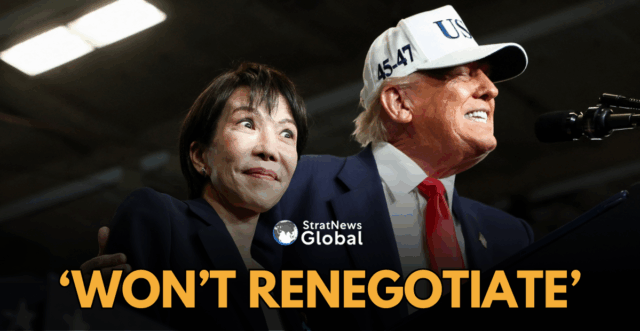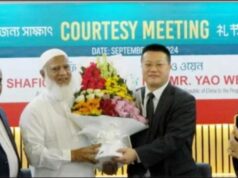Japanese Prime Minister Sanae Takaichi said on Saturday that she had no plans to renegotiate a $550 billion investment package deal reached with the United States.
“I believe that even if the prime minister changes, promises made between governments should not be altered,” Takaichi told reporters at the end of a week of diplomatic events, including a summit with U.S. President Donald Trump.
Takaichi declined to comment on a trade deal that South Korea had inked with the United States, as details of the deal have not been disclosed yet.
Before becoming prime minister last month, Takaichi had said that tariff renegotiation with Washington was not off the table if something came up that seemed unfair and hurt Japan’s national interests.
Takaichi’s China Approach
Hardline conservative Takaichi was elected as Japan’s first female prime minister, breaking a political glass ceiling for women while also setting the country up for a decisive turn to the right.
In Gyeongju, South Korea, Takaichi joined other leaders from around the Asia-Pacific region for an annual gathering and met Chinese President Xi Jinping and South Korean President Lee Jae Myung.
Takaichi said on Saturday that she and Xi had agreed to build a constructive and stable relationship.
Xi told Takaichi that the two countries should not be a threat to each other, according to Chinese state media.
At the meeting, Takaichi said she had “spoken frankly” with Xi about several pending issues, including Beijing’s export controls on rare earths.
But her agenda largely mirrored that of her predecessor, Shigeru Ishiba. It included concerns over Chinese activity in the East China Sea, the safety of Japanese nationals in China, stability in the Taiwan Strait, ending curbs on Japanese seafood and beef imports and the protection of human rights for Uyghurs and people in Hong Kong.
Before her South Korea trip, Takaichi also held her first bilateral meeting with Trump in Tokyo. She said she had “frank, direct discussions and built personal relationships” with Trump.
(with inputs from Reuters)





